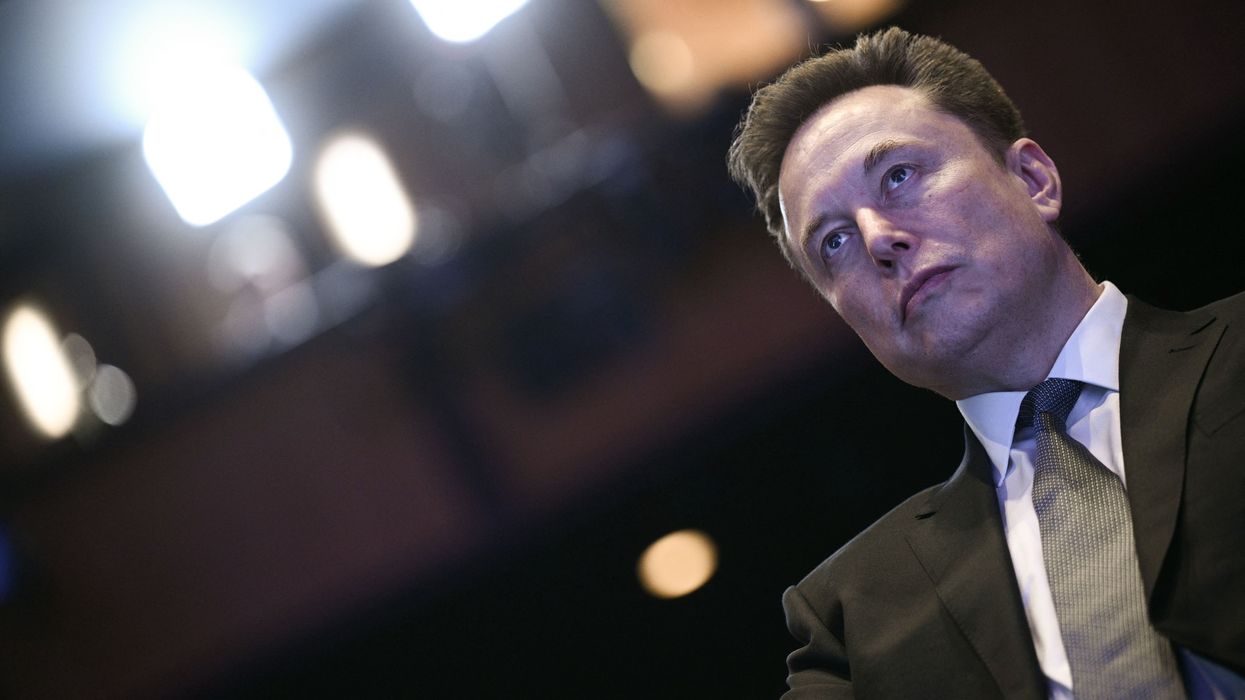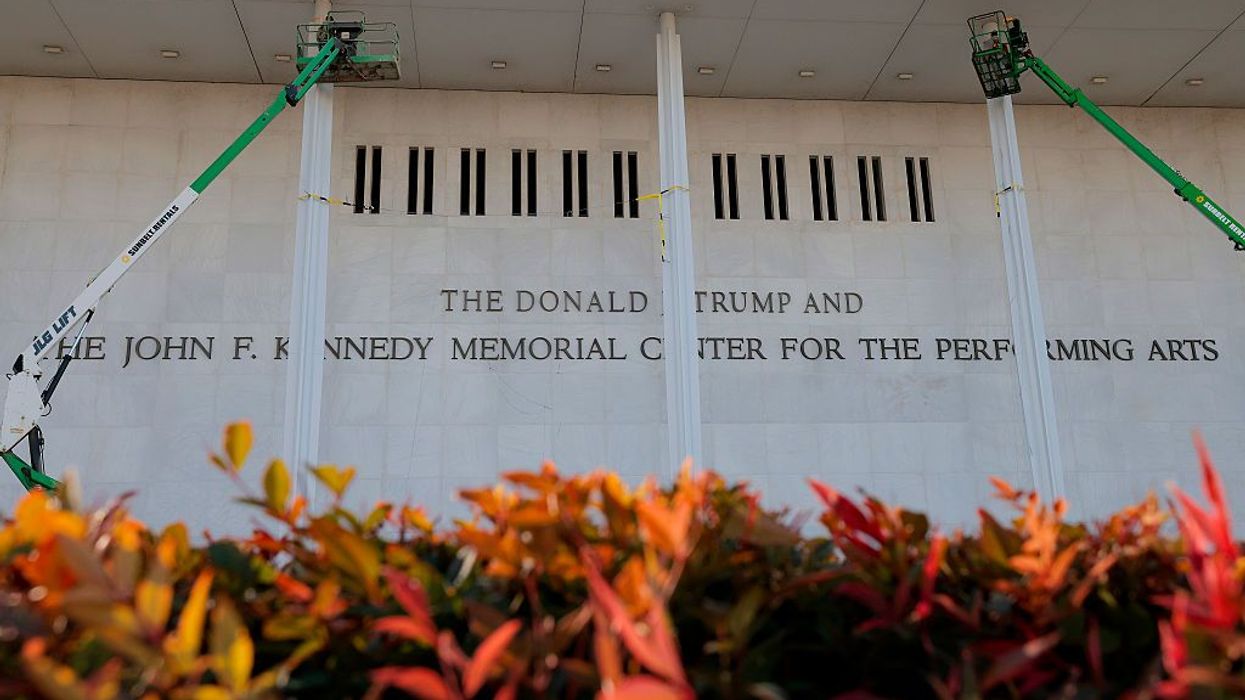July, 21 2010, 11:57am EDT
Wall Street Reform Bill Signed Today Will Limit Excessive Speculation in Agriculture
New rules to curb Wall Street’s influence over food and farming
MINNEAPOLIS, Minn.
The Wall Street reform bill
signed today by President Obama will severely restrict excessive
speculation on
agriculture commodity futures markets that has harmed U.S. farmers and
countries battling hunger, according to the Institute for Agriculture
and Trade
Policy (IATP).
"This landmark bill is a first step toward
preventing
the excessive speculation by big Wall Street banks that has created
enormous
price volatility in agriculture and energy markets," said IATP
commodities expert Steve Suppan. "This is an important win for farmers
and rural communities - whose economic futures are so tightly linked to
agriculture and energy."
The bill requires the Commodity Futures Trading
Commission
(CFTC) to set per commodity limits across all markets on the number of
derivatives contracts that can be controlled by any one entity and its
affiliates during a trading contract period. Previously, Wall Street
firms and
others took advantage of the "Enron loophole" and other regulatory
exemptions to purchase and then sell off derivative contracts for
agriculture
and energy without limits - driving prices up and down.
Just as importantly, the bill requires that most
derivatives
presently traded "Over the Counter," i.e. in private deals not
subject to CFTC rules and reporting requirements, be traded on public
and
regulated exchanges. The legislation also strengthens enforcement
standards and
prosecutorial resources for initiating fraud and market manipulation
investigations.
"This bill will help markets work for agriculture
and
all Americans, not just for Wall Street and the transnational
corporations that
hide their deals in private markets," said Suppan. "With a
return to a more transparent price setting process on public and
regulated
exchanges, farmers and ranchers again will be able to sell their
products in
advance to generate the cash flows they require for planting, livestock
purchases and other farm management expenses."
Greater transparency and tougher position limits in
the U.S.
will also benefit many developing countries. Countries dependent on
agriculture
imports for their own food security will be able to forward contract at
fairer
and more predictable prices. Developing countries that rely on
agricultural
exports will similarly benefit from greater price predictability and
stability
as they forward contract sales.
The bill also requires a study of proposed
mandatory trading
of carbon emissions credits under CFTC authority to induce investments
to meet
greenhouse gas emission targets. The study will estimate the price
volatility
and trading volume affects of carbon trading under proposed climate
change
legislation. Last year, IATP
reported on the risks of excessive speculation on proposed
carbon
markets.
"The next critical phase of Wall Street reform
comes
in the regulatory implementation of this bill," said Suppan. "Wall
Street lobbyists and industry associations fought hard to maintain their
insider privileges - this opposition will be at least as vigorous in the
rule-making process."
IATP will continue to work alongside the Commodity
Markets
Oversight Reform Coalition, Americans for Financial Reform and other
allies to
ensure effective implementation and enforcement. The implementation
process
with regards to agriculture will begin at an Agricultural Markets
Advisory
Committee meeting at the CFTC on August 5.
In 2008, IATP
first reported on the role of big financial firms in
contributing to
steep food price increases. This dramatic price volatility not only
affected
U.S. agriculture, but ultimately contributed to increased hunger in many
of the
two-thirds of developing countries that are food-import dependent and
that rely
on U.S. markets for predictable purchase prices.
The Institute for Agriculture and Trade Policy works locally and globally at the intersection of policy and practice to ensure fair and sustainable food, farm and trade systems.
LATEST NEWS
Elon Musk Is Vowing Utopia Driven by AI and Robotics. Bernie Sanders Has a Few Questions
"I look forward to hearing about how you and your other oligarch friends are going to provide working people with a magnificent life that you promise," the Vermont senator said in a sardonic video.
Dec 19, 2025
The world's richest man, Elon Musk, continues to insist that the artificial intelligence technology he profits from will create an economic utopia free from poverty, where work is optional and saving money is unnecessary.
But at a time of unprecedented wealth inequality that the Trump administration Musk supports has helped to accelerate, Sen. Bernie Sanders (I-Vt.) expressed incredulity about how Musk envisions such a future coming about.
Musk, the CEO of SpaceX and Tesla, made his comments on his social media app X, in response to billionaire investor Ray Dalio, who'd announced that he and his wife were contributing to an initiative backed by the Trump administration to create savings accounts for children born between 2025 and 2028.
Dalio mentioned that the computer billionaire Michael Dell and his wife had also pledged $6.25 billion to the effort.
Unprompted, Musk responded: "It is certainly a nice gesture of the Dells, but there will be no poverty in the future, and so no need to save money. There will be universal high income."
It's a theory that Musk has proposed repeatedly of late. Last month, while on a podcast, he suggested that thanks to rapidly accelerating AI and robot technology, all labor will soon be automated, making the need for wages obsolete: "In less than 20 years, working will be optional. Working at all will be optional. Like a hobby."
Earlier this week, he postulated—in almost Marxian fashion—that automation would do away with the need for money as a store of value.
“I think money disappears as a concept, honestly,” he told another podcast. “It’s kind of strange, but in a future where anyone can have anything, you no longer need money as a database for labor allocation. If AI and robotics are big enough to satisfy all human needs, then money is no longer necessary. Its relevance declines dramatically.”
Social media users have had a field day with Musk's fanciful predictions. One noted that it was a bit strange that a person who believed money would soon lose all value recently strong-armed Tesla shareholders into giving him a nearly $1 trillion pay package, the biggest corporate compensation plan in history. Another simply asked, "Are you high on ketamine?"
But perhaps the most blistering reaction came from Sanders, one of Musk's most steadfast adversaries, who posted a sardonic response video on Thursday.
"I was delighted to hear that through the rapid advancement in artificial intelligence and robotics that you are funding, you will be bringing about utopia to the world," the senator said. "You have told us that poverty will be wiped out, work will be optional, there will be universal high income, and that everyone will have the best medical care, food, home, transport, and everything else. That is wonderful news."
"I just have a couple of questions. How will this utopia come about?" he continued. "If young people can't find the entry-level jobs that used to exist, and they are unemployed without income, when are they going to get the free housing you talk about? If manufacturing workers lose their jobs because robots take their place, when are they going to get the free healthcare you promise? If a young nurse with kids loses her job, how is she going to get the food she needs to feed her family?"
Sanders then turned his attention to the fact that Musk spent an unprecedented amount of more than $270 million to help elect President Donald Trump, who earlier this year enacted historic cuts to the social safety net to fund tax breaks that overwhelmingly benefit the rich, in what has been described as the greatest upward transfer of wealth in US history.
"I look forward to hearing about how you and your other oligarch friends are going to provide working people with a magnificent life that you promise," he continued. "Because let's not forget, Donald Trump, the guy you got elected, is kicking 15 million people off their healthcare, doubling insurance premiums for more than 20 million, and is making massive cuts to nutrition assistance and education for kids across the country."
Sanders concluded, "With that track record, I can't wait to hear how your plan to provide universal high income for every American is going to be implemented."
Keep ReadingShow Less
'An Absolute Joke': Trump DOJ Partially Releases Epstein Files, Many Heavily Redacted
“Trump’s failure to release the Epstein files is an insult to survivors and a further stain on an administration that continuously bends over backwards to protect abusers," said one critic.
Dec 19, 2025
The US Department of Justice on Friday released a massive—but incomplete—trove containing hundreds of thousands of records related to the late convicted sex offender Jeffrey Epstein, a move that came as Democratic lawmakers vowed to pursue "all legal options" after the Trump administration blew a deadline to disclose all of the files.
The DOJ uploaded the files—which can be viewed here in the section titled "Epstein Files Transparency Act"—to its website on Friday. Earlier in the day, Deputy US Attorney General Todd Blanche said that the agency would not release all the Epstein files on Friday, as required by the transparency law signed last month by President Donald Trump.
Friday's release includes declassified files, many of them heavily redacted and some of which were already publicly available via court filings, records requests, and media reporting. Files include flight logs and masseuse lists. One document contains nothing but 100 fully redacted pages.
Curiously, a search for the words "Trump" and "Epstein" in the posted documents returned no results.
The progressive media site MeidasTouch said, "This Epstein files 'release' is the most disgusting cover up in American history."
Journalist Aaron Parnas accused the DOJ of "engaging in a cover up."
"Most of the files are heavily redacted, with very few fully released," he noted. "There are disturbing images of Epstein with victims. There are images of Michael Jackson, Bill Clinton, and others. Donald Trump is not in any of the ones I've reviewed."
While not accused of any wrongdoing, Trump was a former close friend of Epstein, who faced federal sex trafficking charges at the time of his suspicious 2019 death in a New York City jail cell.
Senate Minority Leader Chuck Schumer (D-NY) issued a statement following the DOJ document dump, noting that the Epstein Files Transparency Act passed by Congress and signed by Trump "calls for the complete release of the Epstein files so that there can be full transparency."
"This set of heavily redacted documents released by the Department of Justice today is just a fraction of the whole body of evidence," Schumer continued. “Simply releasing a mountain of blacked out pages violates the spirit of transparency and the letter of the law. For example, all 119 pages of one document were completely blacked out. We need answers as to why."
“Senate Democrats are working to assess the documents that have been released to determine what actions must be taken to hold the Trump administration accountable," he added. "We will pursue every option to make sure the truth comes out.”
Schumer's remarks followed vows by congressional Democrats including Rep. Ro Khanna (D-Calif.)—who, along with Rep. Thomas Massie (R-Ky.) introduced the Epstein Files Transparency Act—to hold Trump administration officials accountable for violating the law.
Responding to the DOJ's document release and delay in fully disclosing the files, Elisa Batista, campaign director at UltraViolet Action, said in a statement that “if the Trump administration had its way, they would undo the sacrifice of survivors who came forward to demand transparency and accountability, as well as all those abused by Epstein who were unable to."
“Trump’s failure to release the Epstein files is an insult to survivors and a further stain on an administration that continuously bends over backwards to protect abusers—and just violated the Epstein Files Transparency Act to do so," Batista added. "We will continue to fight alongside the brave survivors—many of whom were young girls when they were abused by Epstein—who took great risk to reveal Epstein’s globe-spanning sex trafficking network.”
Britt Jacovich, a spokesperson for the progressive political action group MoveOn, said following Friday's release that “President Trump’s Department of Justice is breaking the law by holding all of the Epstein files hostage, and yet again, Trump is doing absolutely nothing."
"Trump doesn’t care about the victims or the millions of Americans calling for justice," Jacovich added. "He only cares about protecting the rich and powerful, even those who abuse young women and children. Every single person named in the Epstein files and involved in the cover-up should face accountability, regardless of their political party. No more delays, no more obstruction.”
Keep ReadingShow Less
'This Is a Desecration!' DC Residents Rage After Trump Slaps His Name Atop Kennedy Center
"He has vandalized the Kennedy Center by putting his name on it," said former CNN host Jim Acosta.
Dec 19, 2025
Residents of Washington, DC reacted with outrage on Friday after construction workers slapped President Donald Trump's name on the John F. Kennedy Memorial Center for the Performing Arts.
One day after it was announced that Trump's name would be added to the Kennedy Center, which was originally named by the US Congress in the wake of President John F. Kennedy’s assassination in 1963, construction workers were spotted altering the lettering on the outside of the building.
When their work was complete, the building had been unofficially renamed as "The Donald J. Trump and the John F. Kennedy Memorial Center for the Performing Arts."
From a legal perspective, the Kennedy Center still retains its original name, as the power to change its name rests with the US Congress and not with the Trump-appointed Kennedy Center board of directors whom the president appointed earlier this year.
Andrew Howard, a Washington, DC resident, reacted with rage during an interview with MS Now when asked about Trump's decision to put his name on the side of the official national cultural center of the US.
"We should be shocked... that a felon, a convicted felon, and a thug, and, by all means, a grift has just stuck his name on top of a national monument," Howard fumed. "This is a desecration!"
DC resident on Trump putting his name on the Kennedy Center:
"We should all be shocked that a convicted felon, a thug, and by all means a grifter has just stuck his name on top of a national monument." pic.twitter.com/hzNcucRha5
— FactPost (@factpostnews) December 19, 2025
Former CNN host Jim Acosta also delivered a report from outside the Kennedy Center, which he described as "the scene of yet another crime committed by Donald Trump."
"He has vandalized the Kennedy Center by putting his name on it," Acosta said.
The former CNN anchor explained that only Congress has the power to make changes to the Kennedy Center's name, before noting that Trump "doesn't care about the law, doesn't care what's appropriate," and concluding that the Kennedy Center stunt was symbolic of "a childish and lawless administration."
Reporting from the scene of the crime. Trump has slapped his name on the Kennedy Center. But we will never call it the Trump Kennedy Center: pic.twitter.com/DFlabMjZPJ
— Jim Acosta (@Acosta) December 19, 2025
Former Republican political operative Tara Setmayer wrote in a post on X that Trump's decision to illegally rename the Kennedy Center demonstrated his authoritarian ambitions to rule America by decree.
"This desecration of the Kennedy Center is another grotesque example of Trump’s 'Dear Leader' behavior," she wrote. "This has been a week of one wretched act after another by Trump. It’s got to stop."
Kerry Kennedy, a niece of the late president, vowed to personally tear Trump's name from the building.
"Three years and one month from today, I’m going to grab a pickax and pull those letters off that building," she wrote, before adding, "But I’m going to need help holding the ladder."
Other members of the Kennedy family condemned the renaming of the center on Thursday when it was first announced.
Former US Rep. Joe Kennedy III (D-Mass.) wrote on Bluesky that “the Kennedy Center is a living memorial to a fallen president and named for President Kennedy by federal law,” and “can no sooner be renamed than can someone rename the Lincoln Memorial, no matter what anyone says.”
Journalist Maria Shriver, a niece of the late president, also expressed her disbelief at the decision.
“It is beyond comprehension that this sitting president has sought to rename this great memorial dedicated to President Kennedy,” she said. “It is beyond wild that he would think adding his name in front of President Kennedy’s name is acceptable. It is not. Next thing perhaps he will want to rename JFK Airport, rename the Lincoln Memorial, the Trump Lincoln Memorial. The Trump Jefferson Memorial. The Trump Smithsonian. The list goes on.”
Keep ReadingShow Less
Most Popular


